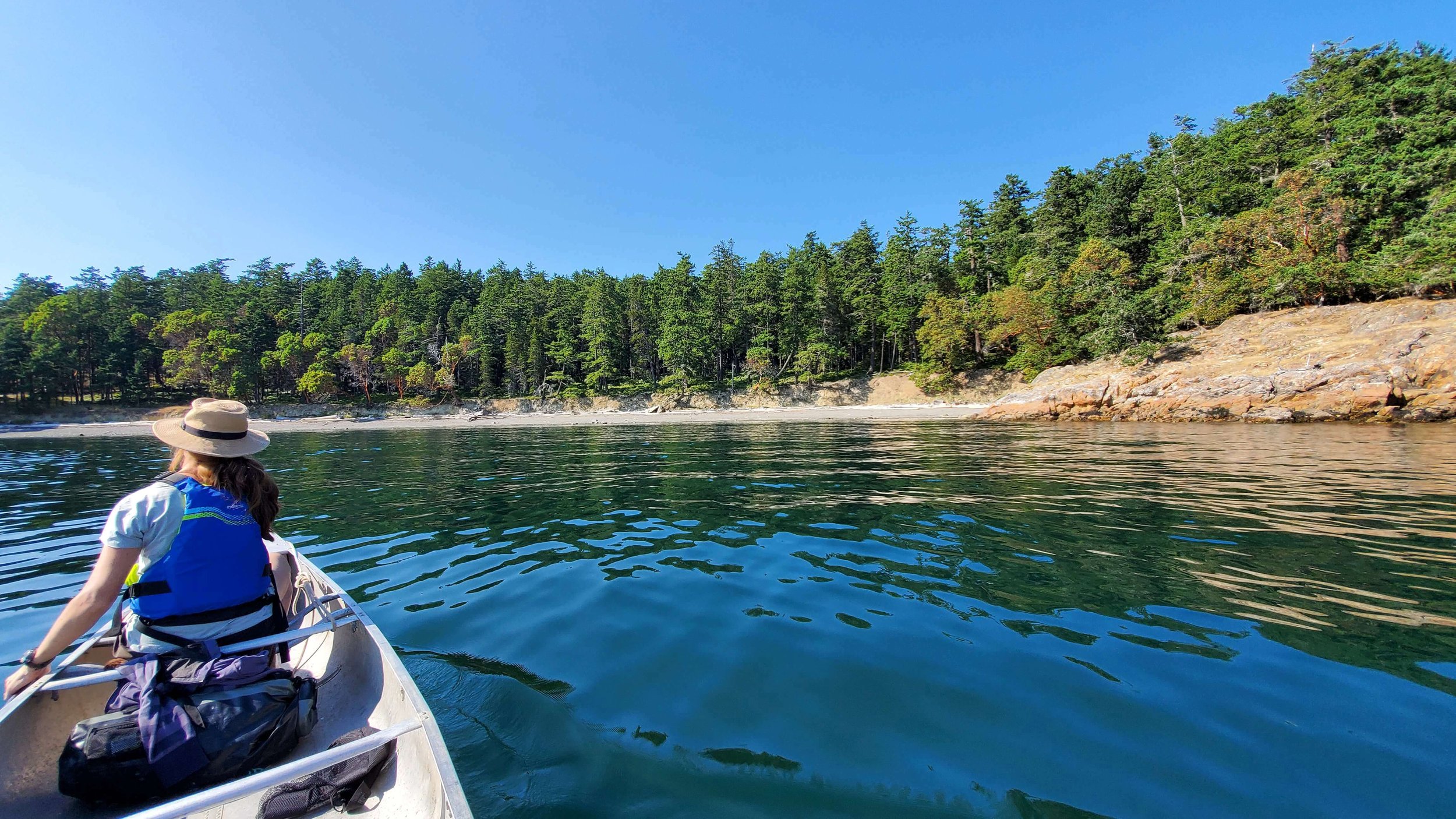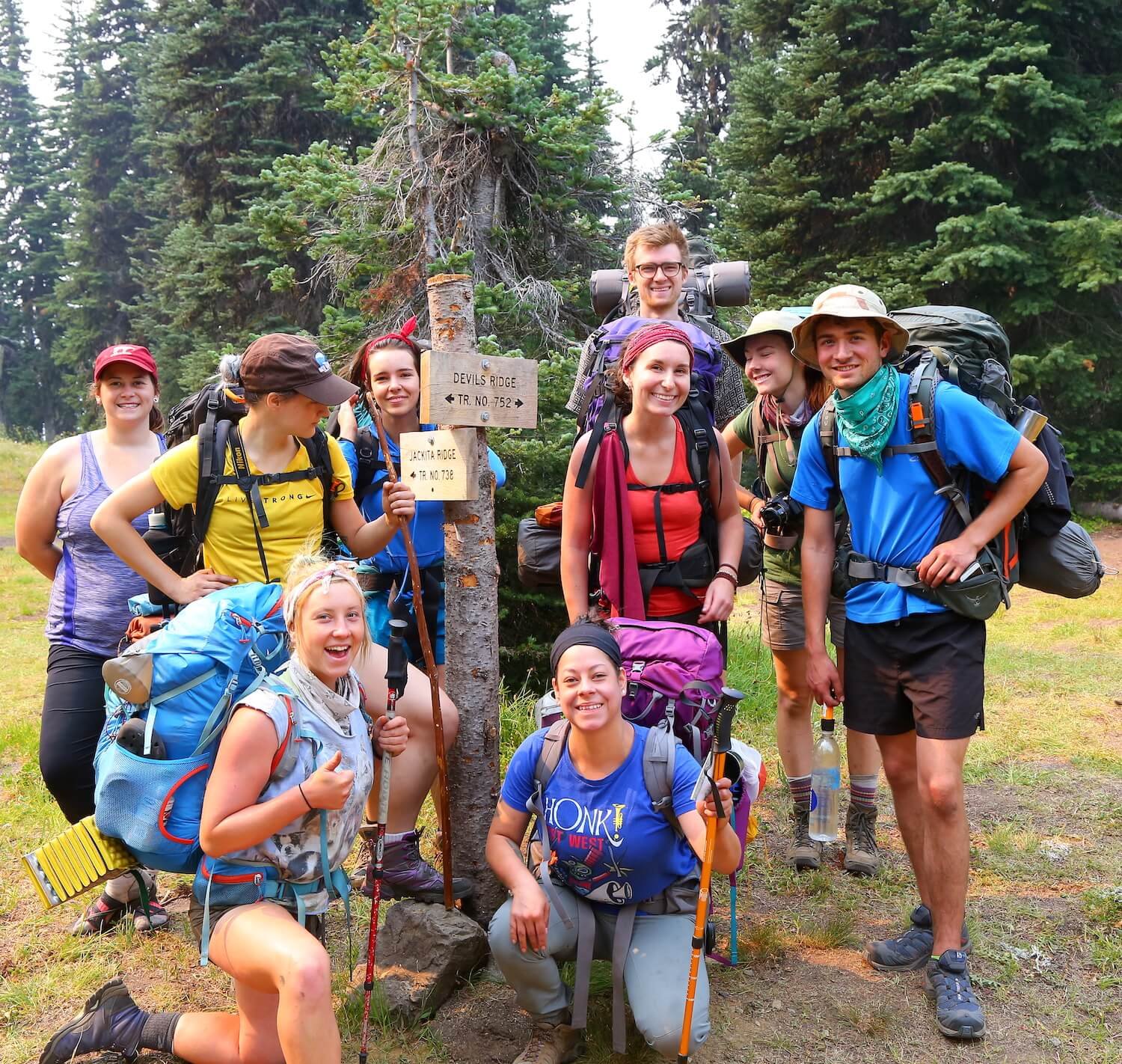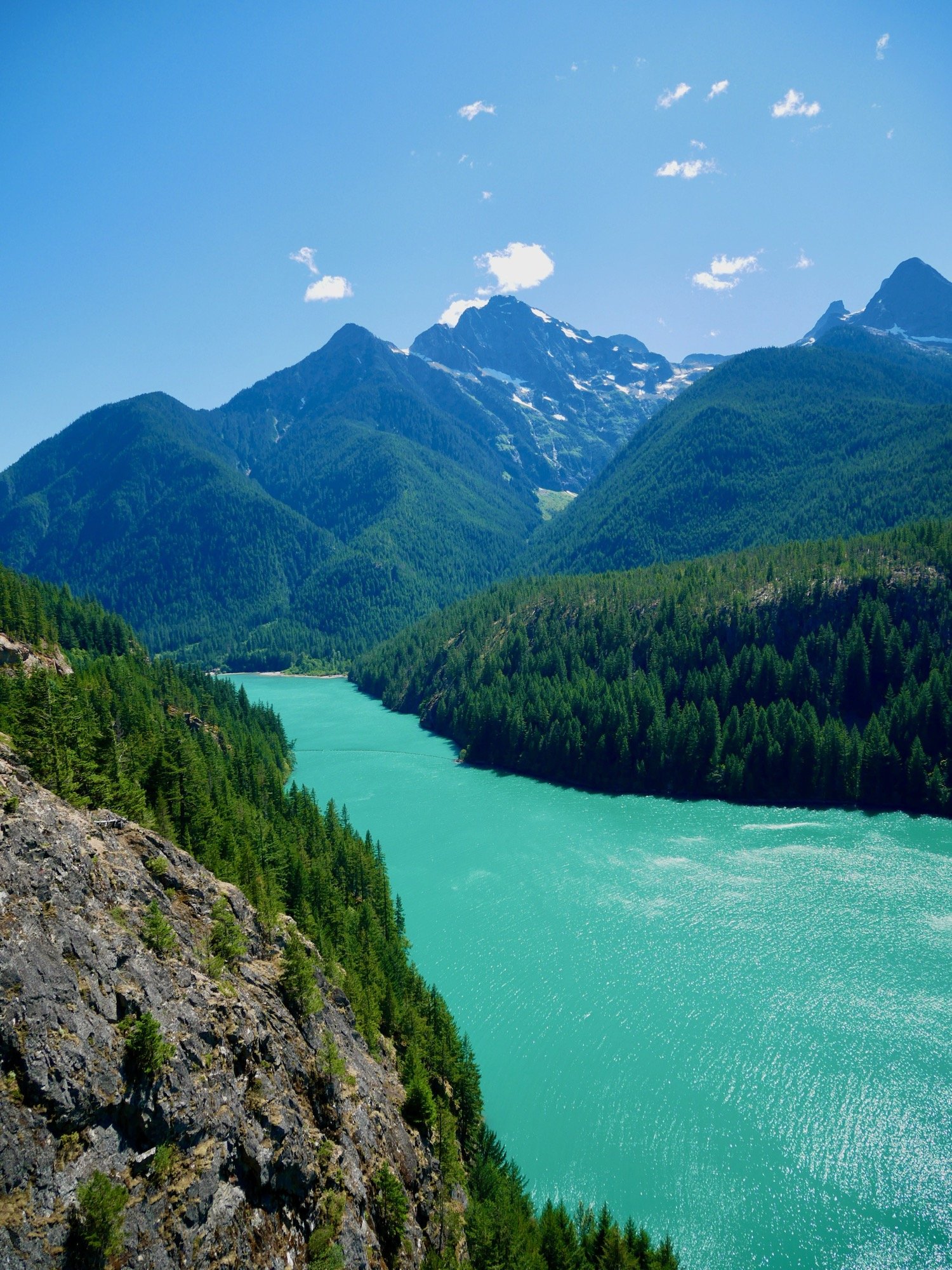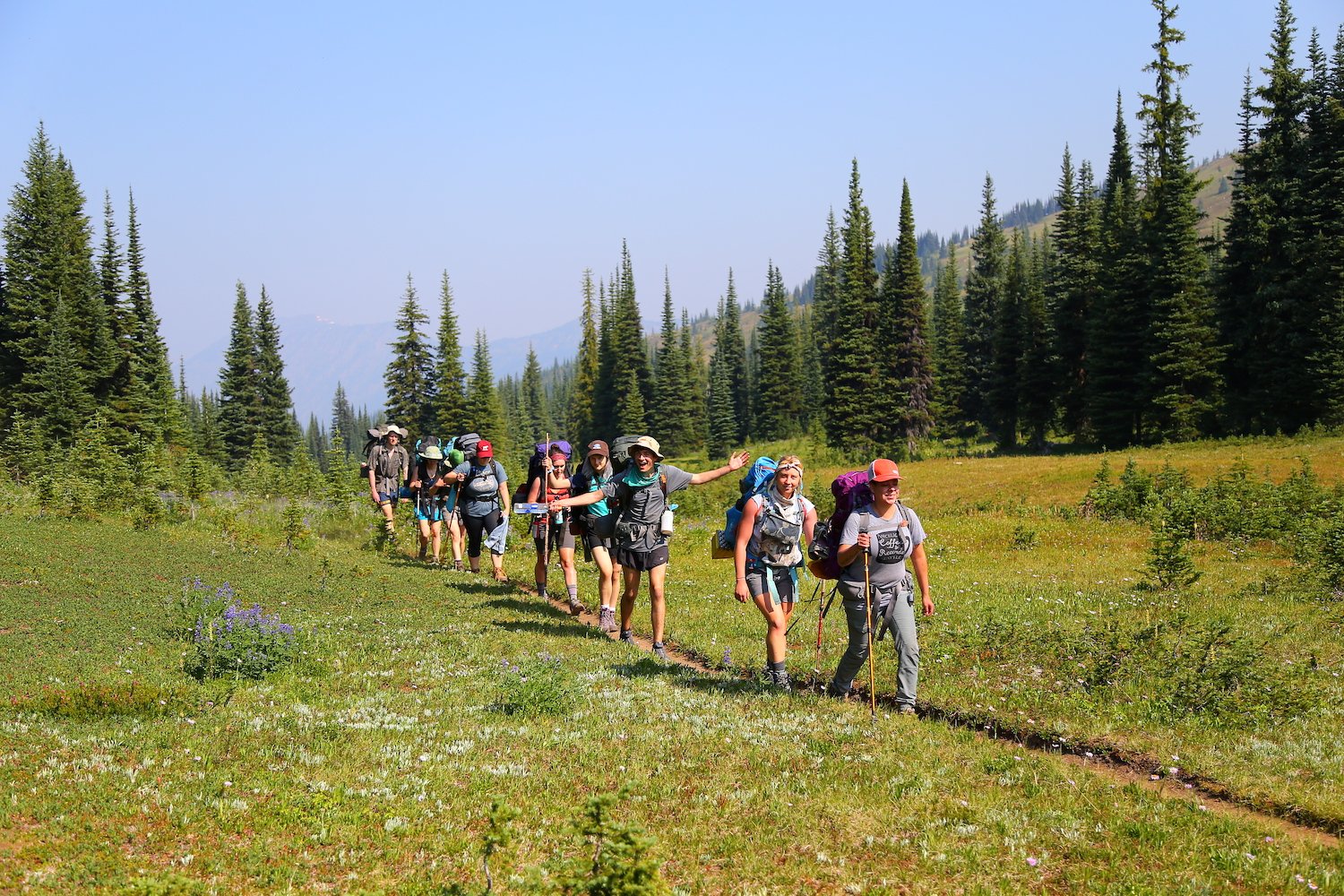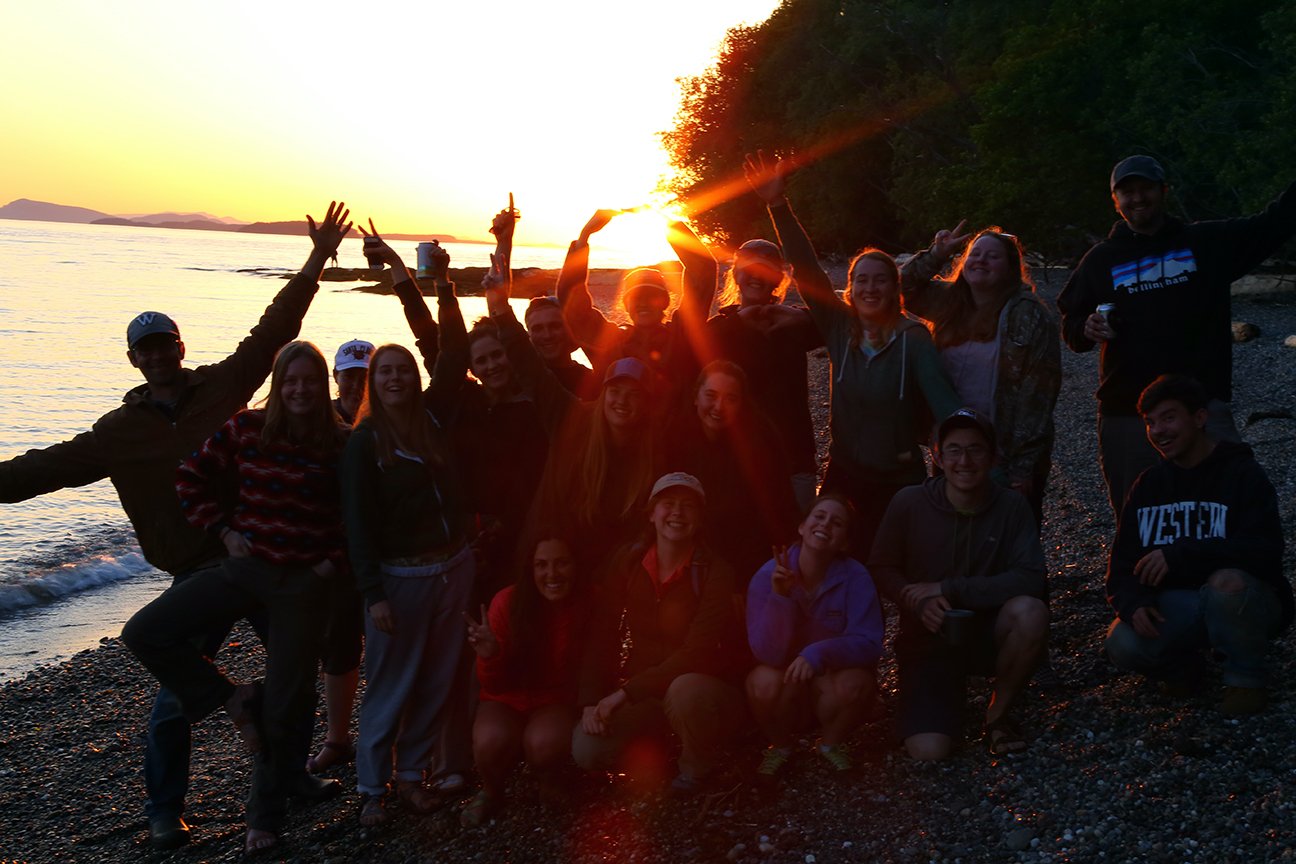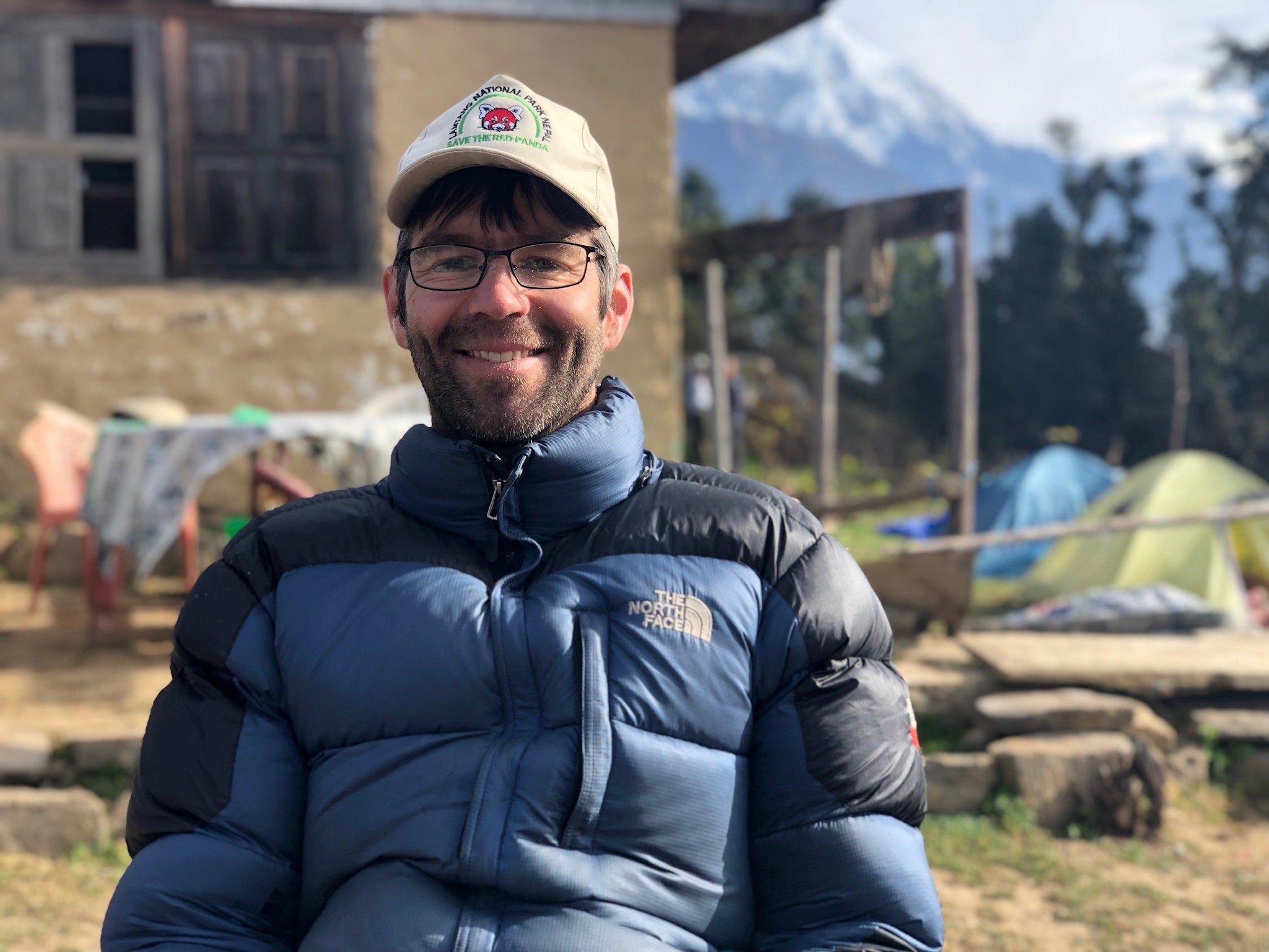
Take part in this immersive fieldwork opportunity focused on Salish Sea biodiversity, conservation biology and ethnoecology to experience the rich array of diversity in our own backyard. This four-week program includes three weeks of outdoor, field-based study and a week of travel in First Nation, Native American, and Settler communities. We will meet with NGOs and public and Indigenous land managers engaged in the stewardship of biodiversity and cultural heritage.
You will learn how biodiversity is defined, measured, mapped, and conceptualized by biologists and other scientists. A primary focus will be on how communities continue to depend on biodiversity despite shifts in land management, climate, and economic needs. How can biodiversity and ethnobiology serve as a touchstone for critical thinking about ecological sustainability and the changing needs of humans? In exploring both threats to biodiversity and how people and institutions are attempting to conserve it, we will examine underlying assumptions about globalization, sustainability, and environmental preservation.
The Salish Sea is a bioregion that encompasses the inland marine waterways of Washington and British Columbia as well as the watersheds that feed them. Indigenous Peoples have inhabited this region for more than 10,000 years and today is home to nearly nine million people, two countries, and more than 65 Tribes and First Nations. From sea to sky, habitats range from as deep as a halibut can dive to as high as a mountain goat can climb and provide refuge to an incredible diversity of life, including more than 6,000 plants, 2,500 fungi, 600 birds, 200 mammals, and 4,000 insects.
Key Features
Hike, kayak, and explore the natural wonders of the Salish Sea bioregion, while working alongside resource managers, conservationists, and traditional knowledge holder to better understand indigenous and settler-colonial histories and conservation efforts.
Discuss parallels between bioregional and cultural diversity while engaging in intercultural dialogue locally.
Put the principles of ethical and responsible travel into action while visiting indigenous lands in the Salish Sea Bioregion in Washington State and British Columbia, Canada.
Have a bioregional study abroad experience and limit your carbon footprint!
Earn 9 credits through Western Washington University by completing coursework in ESCI 330 (4 credits) - Natural History and ESCI 404 (5 credits) - Indigenous Resource Management.
Program Information
SUMMER QUARTER 2023
-
Tuition - $2,592 (In-State)
Program Fee - $1,263.15
Deposit - $1,000
WWU Fees - $141.85
All costs listed are estimated and only include billable expenses. Please see Western Washington University’s budget sheet for more information on fees and tuition for non-resident students, as well as further explanation on billable and non-billable expenses.
INCLUDES:
Tuition and fees for 9 credits through Western Washington University (ESCI 330 - Natural History and ESCI 404 - Indigenous Resource Management)
4 weeks traveling in the Salish Sea Bioregion
Lodging & meals (B, L, D)
Transportation
Treks and other excursions
Travel health insurance
NOT INCLUDED:
Immunizations/personal medical expenses
Passport/documentation required for entry to Canada
Books & supplies
Independent travel & personal expenses
What will you do?
The program begins at WWU with a three-day orientation comprised of introductory talks, team building and intercultural competencies to better understand our privilege and identity. We will then drive to the traditional territory of the Upper Skagit Tribe, where we will spend the next two weeks meeting with federal and Indigenous land managers and participate in locally-led citizen science projects. Our group will then take to the backcountry to study biodiversity and conservation while canoeing on Ross Lake and backpacking through one of the most remote corners of the North Cascades. From there, we will drive into Canada to visit the Stó:lō Nation. There, we will learn the place names of their traditional territory and examine the curation of Coastal Salish art and culture at the UBC Museum of Anthropology. The last week will be spent kayaking in the San Juan Islands and learning from Samish and Stillaguamish land managers while studying Salish Sea biodiversity. After returning to Bellingham, the program will take a short break before reconvening on campus for the post-trip seminar and public presentations to share our experiences and learnings.
A typical day of fieldwork:
Camping in the front country
7:00-8:00 Nature walk (themes include species identification, understanding how organisms are adapted to their environments, and practical applications of ecological theory)
10:00-12:00 Visit land managers, scientists, Indigenous communities.
1:00-4:00 Visit museums, botanic gardens, and other points of interest
5:00-6:00 Reading discussion or community events
7:00-8:00 Reflection exercises
Hiking, Kayaking & Camping in the backcountry
6:30-7:30 Natural walk (themes include species identification, understanding how organisms are adapted to their environments, and practical applications of ecological theory)
8:30-2:00 Hike to the next location with stops for trailside mini-lectures on topics related to geology and ecology.
3:00-5:00 Time to read and work on assignments
5:00-6:00 Reading discussion
7:00-8:00 Reflection exercises
Build Long-Lasting
Community Partnerships
An important component of our work together will involve taking the first steps to build long-term, mutually beneficial relationships, which is the foundation of our approach. You will get a glimpse into the challenges and opportunities associated with scientific fieldwork and natural resource management that are often at the heart of conflicts between settler and indigenous communities. In the inaugural year of this program, our goal is to learn from our partners and begin to build relationships based on mutual respect and reciprocity. We know these are the foundations for creating systems that prioritize local knowledge and uphold values of social and environmental justice. By participating in this program, you will develop the soft skills necessary for your future career, as well as a more in-depth understanding of the bioregion where we live.
Have Questions?

Faculty Leader
Abe Lloyd
WWU Faculty Member
Faculty Leader Salish Sea & Nepal Programs
Abe has a passion for plants, conservation and ethnobotany that traces back deep into his childhood. His early aspirations as a botanist led him to Northland College on the south shore of Lake Superior, where he completed a Bachelor’s of Science in Natural Resource Management. Since then, research projects have taken Abe to many corners of the planet, most notably, Nepal, where he served as an ethnobotanist for the Peace Corps with Langtang National Park.
He holds a Master’s Degree in Ethnoecology from the University of Victoria and is an active member of the Washington Native Plant Society, the NW Mushroomers, and the Society of Ethnobiology. Abe is a Senior Instructor at Western Washington University and is passionate about supporting Salish tribes on issues related to revitalizing Indigenous food traditions, loves harvesting wild foods, and is the author of the book Wild Berries of Washington and Oregon.
Ready to join us?



